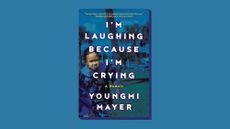Parents are heroes
Parents make heroic social contributions. It's time that all Americans acknowledged this fundamental truth.

America has a bad case of baby blues. Our birthrate just hit a 30-year low, and fertility-wise, we now lag behind countries like Sweden that were once Ground Zero of the birth dearth. That bodes ill for our economy, and for anyone who prefers a dynamic, entrepreneurial society to one where robots may be your last remaining friends.
We need a solution to this demographic problem.
One option is to follow Europe's lead by juicing up America's family policy. Paid parental leave, child allowances, and subsidized day care have helped some European nations raise their birthrates. American liberals are largely enthused about those possibilities. Conservatives tend to be warier, for fiscal reasons, but also because we're uncomfortable with entitlements that encourage mothers to institutionalize their children from young ages.
Subscribe to The Week
Escape your echo chamber. Get the facts behind the news, plus analysis from multiple perspectives.

Sign up for The Week's Free Newsletters
From our morning news briefing to a weekly Good News Newsletter, get the best of The Week delivered directly to your inbox.
From our morning news briefing to a weekly Good News Newsletter, get the best of The Week delivered directly to your inbox.
Family policy is something of a quagmire in America, because it's become a proxy battleground for the Mommy-War tensions that have divided this country for decades. The political left, in its anxiousness to ensure that women are not marginalized, favors policies that minimize the impact of maternity on traditional career development. For the right, the focus is more on underscoring the appropriateness of prioritizing family over other pursuits (particularly if one happens to be a woman). Locked in debate over what women should be doing, we end up doing far too little for them. This partly explains how the U.S. ended up joining Lesotho, Swaziland, and Papua New Guinea in that exclusive club: the "We Do Nothing For New Parents Here" Society.
Let's try shifting our focus.
We can all surely agree that conscientious parenting is admirable and socially useful. Indeed, one reason birthrates are falling is because today's parents are more or less expected to be ardent and dedicated benefactors to the young, pouring enormous energies and resources into protecting, cultivating, and educating the next generation. Gone are the days when kids could be expected to dedicate long hours to the family farm or business. For most Americans (with certain controversial exceptions), childhood today is lengthy process of preparation for a rarified, information-age labor force. The evidence suggests that parental involvement is critical to adult success, which is why we pressure parents to go the extra mile (or 50), from the "best-odds" maternity diets through the college care packages. But in exchange for their gargantuan effort and sacrifice, parents really aren't entitled to anything, apart from the bragging rights. We even redistribute the kids' financial contributions to ensure that non-parents get their share of retirement support.
The bottom line is that we expect and even need parents to make heroic social contributions. Why not treat them like heroes, then? Especially now, when growing numbers of people are choosing not to have kids, it makes sense to acknowledge parents as socially valuable persons deserving of particular respect. This needn't be viewed as a backdoor method of shaming the childless. On appropriate occasions, I gladly honor soldiers, pastors, schoolteachers, rescue workers, and other persons whose do critically important work for largely selfless reasons. I'm not ashamed of the fact that I've never fought fires or enlisted in the military. I just think it's healthy and right to honor people who have done so much for the common good.
Parents deserve to be on that list.
If we wanted to boost parental prestige, one cost-effective idea would be to issue parents formal ID cards, denoting their particular status. (A special mark on a driver's license or state ID would be an even easier alternative.) We could distinguish between custodial and "veteran" parents (e.g. those who have already raised children), and that status could entitle the bearer to a few small perks, such as discounted admission to state or national parks. Private businesses would also have a chance to demonstrate their pro-family bona fides by offering special discounts to parents (just as some currently do for military families, seniors, students, or educators). In and of themselves, these benefits would presumably be quite small. But this isn't really about scoring half-price appetizers at Chili's on Thursday nights. It's about communicating appreciation for parental contributions. Anyway, doesn't everyone love that warm glow of getting special treatment?
As a more significant benefit, we might consider strategies for giving parents a professional boost after a certain number of years in caregiving "service." We give military veterans explicit advantages in federal hiring, along with educational advantages and other career-boosting opportunities. We do that to acknowledge the value of their contributions, but also because we understand that military service tends to claim youthful years that could otherwise be spent building longer-term careers. Couldn't similar claims be made on behalf of parents, who may sacrifice critical career-building opportunities for the sake of children? People may be more willing to make those sacrifices if they see some chance of making up lost ground later in life. (For those inclined to object that veterans have risked their very lives, I would call attention to these maternal mortality rates. Mothers die every day in this country for the sake of transmitting life, and nobody offers them hazard pay, or gives benefits to their bereaved families. It's not unreasonable to compare them to military vets.)
Suppose caregivers, after a certain period of "service" (caring for children at less-than-full employment), could qualify for special scholarships or discounted university classes. They might also be given special hiring status, of a sort that would get them in the door for a few interviews. These benefits would send a message about the value of parenthood, while also softening the attendant sacrifices. I might add as well that conservatives may soften on the taxpayer-financed day care and parental leave, if it's clear that full-time caregivers are also being acknowledged in some way.
None of these suggested measures are incompatible with, say, a generous state-supplied child allowance. Since I have a lot of kids, a child allowance sounds great to me, until I start thinking about the looming national debt that may blight my children's futures once they reach childbearing age. I'll argue aggressively for that kind of policy once it's clear to me how it fits into a responsible, long-term fiscal plan. In the meantime, more modest and means-tested financial supports may be all we can manage. Respect, however, is free. No nation is too indebted to give honor to those who deserve it.
Babies are tomorrow's leaders, entrepreneurs, artists, and miracle-workers. Good parenting is absolutely essential for securing that invaluable resource. If we want our society to have a bright future, we don't necessarily need aggressive state interventions. Let's start by acknowledging parents for the heroes that they are.
Sign up for Today's Best Articles in your inbox
A free daily email with the biggest news stories of the day – and the best features from TheWeek.com
Rachel Lu is a writer based in Roseville, Minnesota. Her work has appeared in many publications, including National Review, The American Conservative, America Magazine, and The Federalist. She previously worked as an academic philosopher, and is a Robert Novak Journalism Fellow.
-
 Can AI tools be used to Hollywood's advantage?
Can AI tools be used to Hollywood's advantage?Talking Points It makes some aspects of the industry faster and cheaper. It will also put many people in the entertainment world out of work
By Anya Jaremko-Greenwold, The Week US Published
-
 'Paraguay has found itself in a key position'
'Paraguay has found itself in a key position'Instant Opinion Opinion, comment and editorials of the day
By Justin Klawans, The Week US Published
-
 Meet Youngmi Mayer, the renegade comedian whose frank new memoir is a blitzkrieg to the genre
Meet Youngmi Mayer, the renegade comedian whose frank new memoir is a blitzkrieg to the genreThe Week Recommends 'I'm Laughing Because I'm Crying' details a biracial life on the margins, with humor as salving grace
By Scott Hocker, The Week US Published